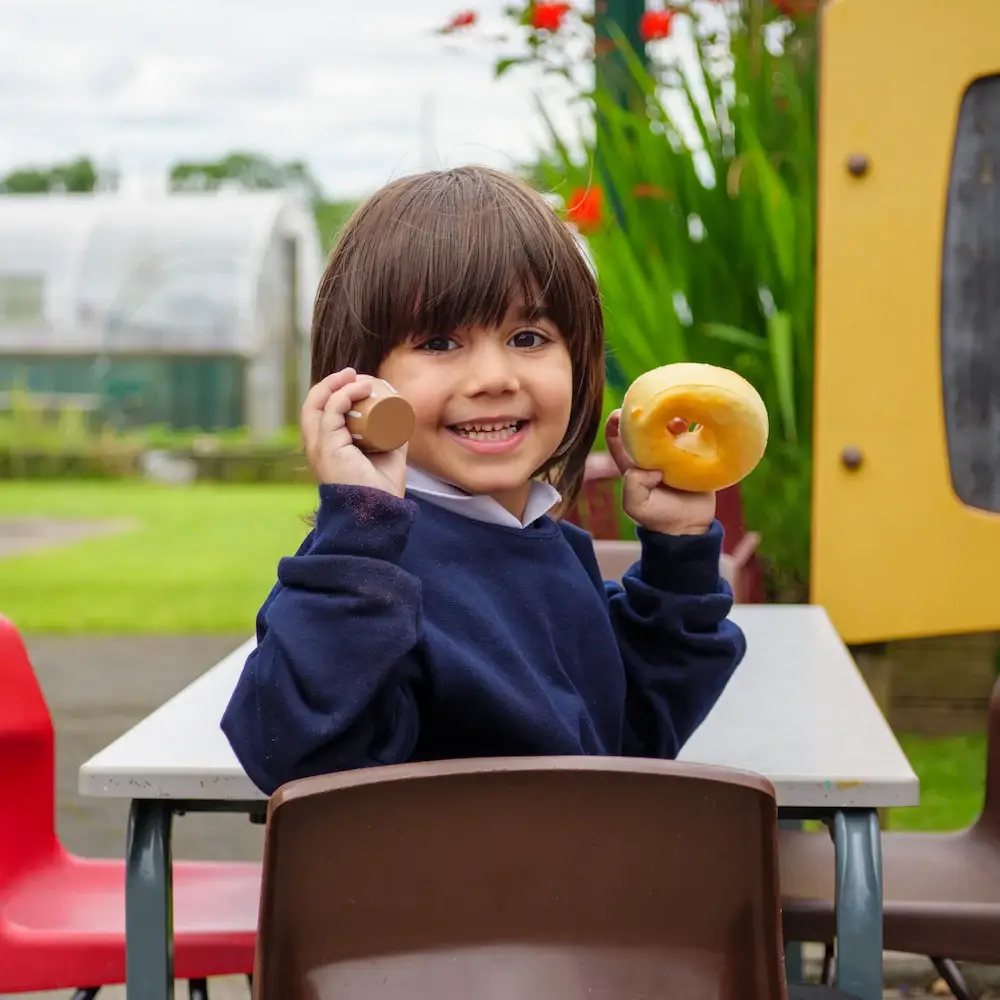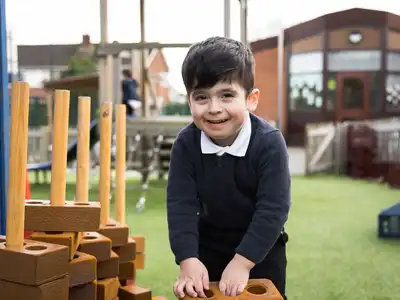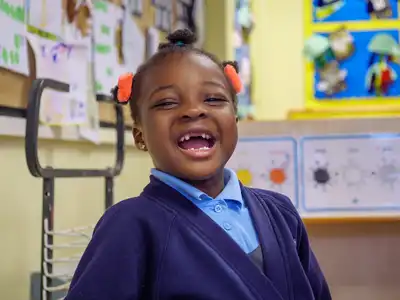How can early years settings create a truly inclusive environment for every child? Expert practitioners Dixie-Louise Dexter and Nicola Middleton explain four approaches their early years team takes to provide tailored support from the very start.
Every child is unique, and some need extra support to thrive at school. Like many schools, Ashby Hill Top Primary School has seen a significant rise in both the variety and level of need in pupils with special educational needs and disabilities (SEND) in recent years. In the Early Years Foundation Stage (EYFS), many children start school before anyone has identified a need, provided specialist support or arranged funding. This can create complex challenges for everyone involved.
Some pre-schools provide extra adult support, but not all children get referrals for diagnosis or specialist advice before starting school. Because of this, children, parents and staff can feel anxious and overwhelmed. Over recent years, we have welcomed children who need a more individual approach – beyond the reasonable adjustments often mentioned in guidance.
We want every child to thrive, and we celebrate each child’s strengths, interests, emotions and challenges. No single approach works for all, but we have found some key approaches that help children succeed.
This case study is part of a series exploring the four overarching principles of the early years foundation stage: the unique child, positive relationships, enabling environments, and learning and development.
1) Build relationships with families
Our first and most important step is to build an open and trusting relationship with each family. Parents know their child best and can share valuable information about triggers, soothing strategies, interests and development.
There are additional SEND sessions in our induction, where parents and children spend time together in the classroom. This helps ease worries and helps everyone feel comfortable. When school starts, we encourage parents to stay with their child in the classroom as much as possible. This allows us to observe their communication and co-regulation, while we offer the child trusted emotional support. We then gradually transfer the trusted adult role from the main carer to school staff.
We hold regular, informal meetings with parents – sometimes involving the senior leadership team or the SENCO – to focus on positive experiences and to work together to solve challenges. These strong relationships help create continuity between home and school, with shared language and ways of doing things.
2) Be led by the child
Another approach we take is to not project our own expectations onto each child's journey.
For example, we might worry if a child chooses to play alone but this may be the right choice for them at that moment. We now understand that respecting their decisions and following their lead is more inclusive for them.
Using children's special interests to support their learning, rather than forcing new interests, is another approach we take. This helps keep them regulated and ready to welcome new learning. For example, we have taught skills such as tolerating delay through games linked to special interests. For a child who loves cars, using countdowns to start a race or waiting for vehicles to drop down a tube can help nurture these skills.
We also create individual timetables to suit children's needs. We build these around patterns and trends we notice over time, such as hunger, tiredness or other triggers. Staff who know the child well can spot early signs of anxiety or dysregulation and offer timely, alternative choices. Our leadership team has removed the pressure for children to always do what their peers are doing, as we see this as the opposite of inclusion. By observing and responding to each child's cues, we help them be successful every day.

3) Consider sensory awareness
Understanding each child’s sensory profile is vital in supporting their regulation and readiness to learn. We initially introduced sensory changes for individual children, but after seeing whole-class benefits, we made them part of our inclusive daily routine.
By exploring responses to the five main senses – touch, taste, sight, sound and smell – we adapt environments to keep children regulated and engaged, while promoting wellbeing. Further insights into balance and movement (vestibular), body awareness (proprioception), and internal states and emotions (interoception) help us plan activities that balance sensory-seeking behaviours with avoiding overstimulation. This detailed knowledge keeps children happy, balanced and involved.
We build tailored sensory time into the schedules of children with additional needs, based on staff observations. Activities include rocking, barefoot play, bouncing on exercise balls, sensory snacks and deep pressure hugs. Equally important is knowing what doesn’t work – like bright lights. One child’s preference led us to replace overhead strip lights with lamps and fairy lights. Everyone welcomed this change, and we have made it a permanent feature. These approaches create a calmer classroom where all children feel safe, engaged and included.
4) Take a whole-school approach
Our ethos is that our whole staff team cares for every pupil in our school. We inform all classroom staff, not just early years staff, about strategies for success with individual children so that everyone provides a consistent approach in all interactions. The senior leadership team dedicate time within staff meetings to discuss vulnerable pupils as well as including updates in weekly staff bulletins. Keeping our whole staff team informed and committed to agreed strategies helps us create consistency across the school environment.
As children move through school, we give teachers dedicated handover time where they discuss children in-depth as well as share transition documents that include key information. We introduce pupil’s new teachers to the family early, and attend meetings before transition to ensure they have all the information they need. At our school peer mentoring and mutual support among staff is essential.
Strong foundations for success
We aim to get things right for our children, but we know we may not succeed first time or every time. Establishing personalised approaches with children and families takes time and commitment from the whole school. Advice from specialist services often helps shape a bespoke curriculum, timetable and setting to suit each child's needs.
These four approaches provide a solid foundation for children with additional needs in the early years. As pupils feel safe and content, we have seen increased engagement, calmer child-led play and better wellbeing. These are all key to continuing their journey in mainstream education with a genuine sense of belonging.




